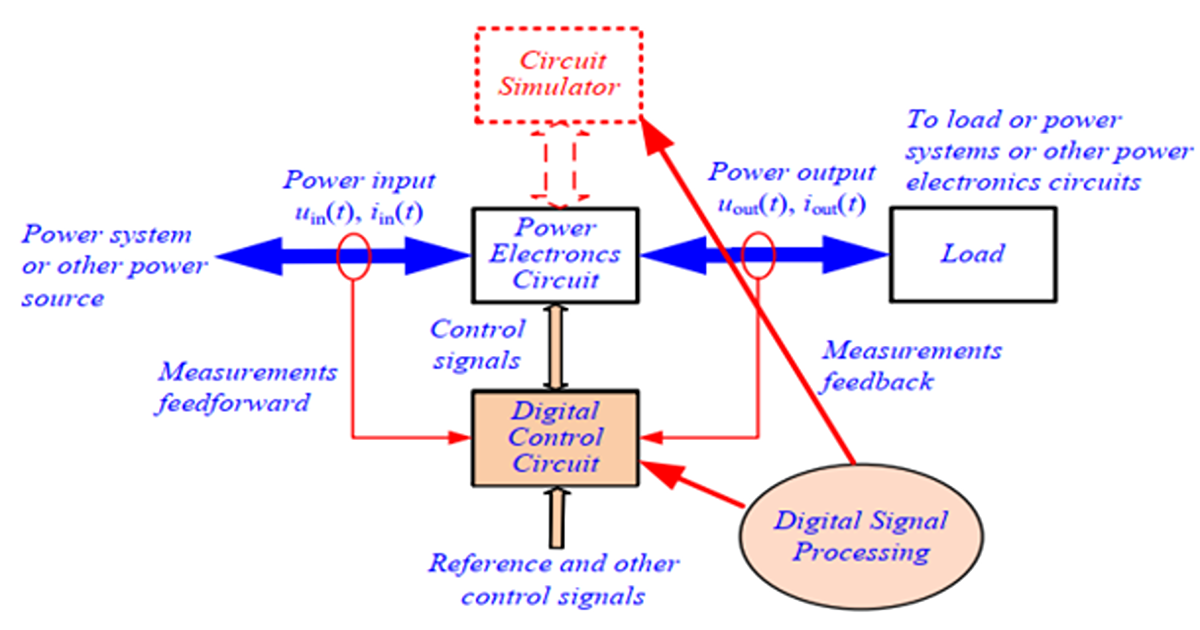Advancements in Digital Signal Processing and Power Electronics: Innovations and Applications
A special issue of Energies (ISSN 1996-1073). This special issue belongs to the section "F3: Power Electronics".
Deadline for manuscript submissions: 25 February 2026 | Viewed by 163

Special Issue Editor
Interests: active power filters; digital signal processing using digital signal processors in power electronics circuits; high quality analog and digital audio power amplifier
Special Issues, Collections and Topics in MDPI journals
Special Issue Information
Dear Colleagues,
As Guest Editor of the Special Issue on "Advancements in Digital Signal Processing and Power Electronics: Innovations and Applications", I cordially invite you to submit your research papers.
This Special Issue will focus on challenges related to the design of efficient control circuits, with particular emphasis on the application of digital signal processing (DSP) methods in control systems. Special attention will be given to utilizing DSP techniques to achieve the desired voltage and current parameters in power circuits.
Additionally, in the process of commissioning and testing control systems, analog or digital simulators of power electronic circuits, as well as hardware-in-the-loop (HIL) techniques, are often employed. In such cases, the application of DSP methods is also of great importance.
In the early stages of power electronics circuit development, very simple control algorithms were implemented using analog systems. However, increasing quality requirements for voltage and current parameters necessitated the use of more sophisticated control algorithms. This led to the adoption of digital control systems, initially based on 8-bit microcontrollers and later evolving to highly advanced 32-bit microcontrollers.
It is also important to highlight the role of field-programmable gate arrays (FPGAs), which are often used in conjunction with microcontrollers. Consequently, the challenges associated with the implementation of digital control algorithms are highly relevant. In this context, the application of DSP methods can also be highly beneficial.
The submitted papers may address various topics related to control systems for power electronics circuits, including, but not limited to, the following:
- Advanced control algorithms for power electronics applications;
- Software and hardware solutions for commissioning and testing control systems in power electronics circuits;
- Novel types of controllers used in control systems;
- Analog and digital filters applicable to control circuits, including anti-aliasing filters;
- Methods for commissioning digital control systems;
- Autotuning of digital controllers;
- Advanced techniques for implementing digital regulators;
- Software simulation of power electronics circuits;
- Multichannel analog signal acquisition for digital circuits, addressing aspects such as simultaneous sampling, sampling rate, signal range, resolution, jitter, and galvanic isolation;
- New voltage and current sensors, with or without galvanic isolation;
- High-resolution pulse-width modulation (PWM) for class-D audio power amplifiers;
- Application of multicore microcontrollers for implementing advanced control algorithms;
- Digital phase-locked loops (PLLs), including all-digital PLLs and analog PLLs;
- Application of artificial intelligence (AI) in control circuits;
- Analog and digital real-time circuit simulators for power electronics circuits, including HIL simulations.
When presenting the results of simulation or experimental studies, it is essential to ensure that the research object is fully described so that readers can replicate similar studies. Therefore, authors should provide a schematic diagram of the system and key parameters of the power electronics circuit, including A/D conversion resolution, PWM modulator resolution, computational resolution, sampling frequencies, control algorithm execution time, etc.
For simulation studies, it is also necessary to specify any simplifications assumed in the circuit model.
Once again, I warmly encourage submissions that explore these topics and contribute to advancements in digital signal processing and power electronics control systems.
Prof. Dr. Krzysztof Sozański
Guest Editor
Manuscript Submission Information
Manuscripts should be submitted online at www.mdpi.com by registering and logging in to this website. Once you are registered, click here to go to the submission form. Manuscripts can be submitted until the deadline. All submissions that pass pre-check are peer-reviewed. Accepted papers will be published continuously in the journal (as soon as accepted) and will be listed together on the special issue website. Research articles, review articles as well as short communications are invited. For planned papers, a title and short abstract (about 250 words) can be sent to the Editorial Office for assessment.
Submitted manuscripts should not have been published previously, nor be under consideration for publication elsewhere (except conference proceedings papers). All manuscripts are thoroughly refereed through a single-blind peer-review process. A guide for authors and other relevant information for submission of manuscripts is available on the Instructions for Authors page. Energies is an international peer-reviewed open access semimonthly journal published by MDPI.
Please visit the Instructions for Authors page before submitting a manuscript. The Article Processing Charge (APC) for publication in this open access journal is 2600 CHF (Swiss Francs). Submitted papers should be well formatted and use good English. Authors may use MDPI's English editing service prior to publication or during author revisions.
Keywords
- power electronics circuits
- digital signal processing
- digital signal processors
- microcontrollers
- digital controller
- current control
- simultaneous sampling
- digital filters
- class D amplifier
- implementation of control algorithm
- hardware-in-the-loop (HIL)
- phase-locked loops
- artificial intelligence
Benefits of Publishing in a Special Issue
- Ease of navigation: Grouping papers by topic helps scholars navigate broad scope journals more efficiently.
- Greater discoverability: Special Issues support the reach and impact of scientific research. Articles in Special Issues are more discoverable and cited more frequently.
- Expansion of research network: Special Issues facilitate connections among authors, fostering scientific collaborations.
- External promotion: Articles in Special Issues are often promoted through the journal's social media, increasing their visibility.
- Reprint: MDPI Books provides the opportunity to republish successful Special Issues in book format, both online and in print.
Further information on MDPI's Special Issue policies can be found here.





